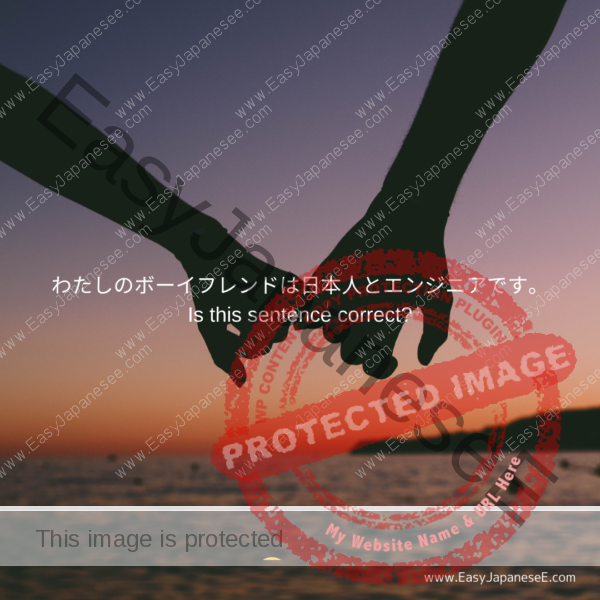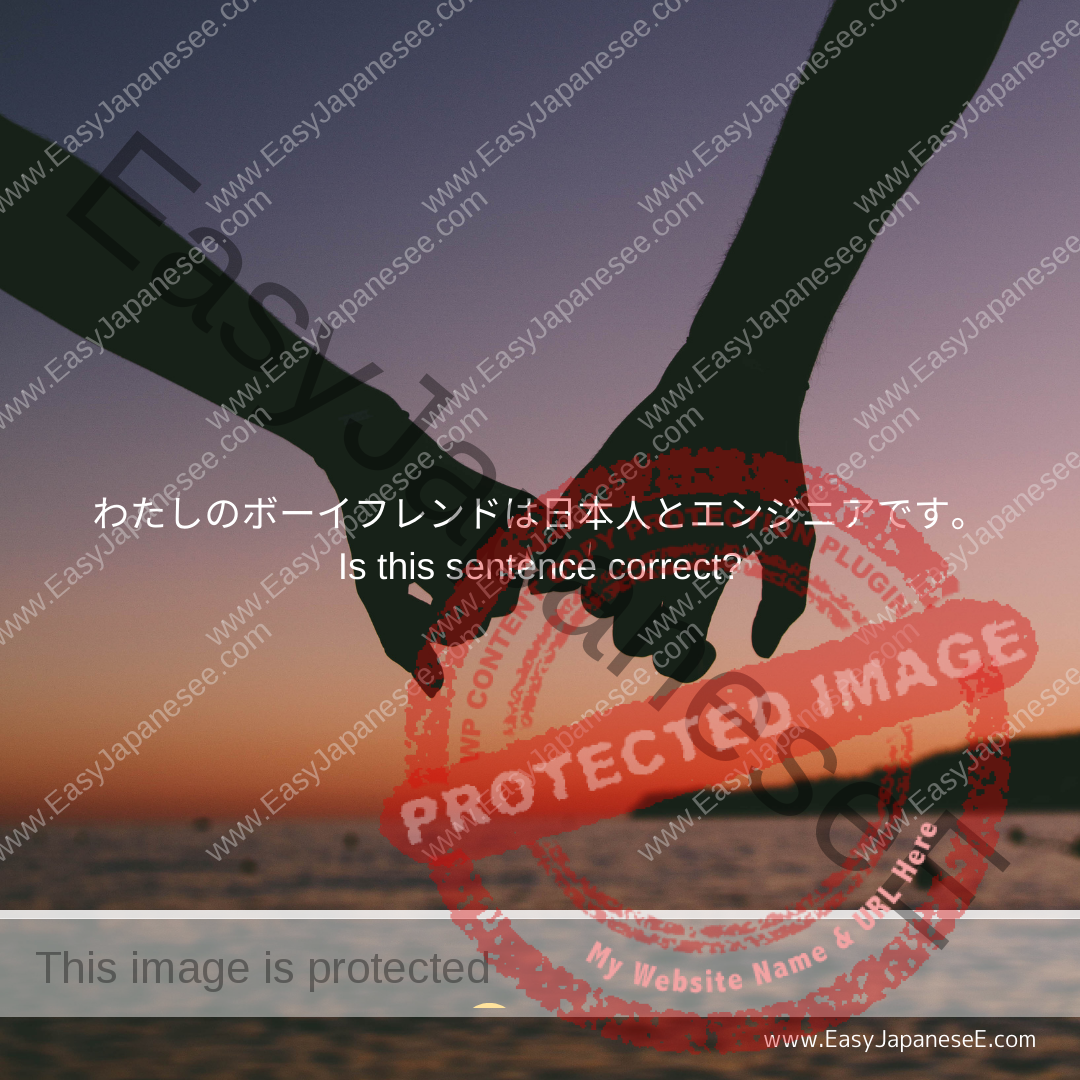
わたしのボーイフレンドは日本人とエンジニアです。
Is this sentence correct?
Correct or not depends how many boyfriends you have.
If you have only one boyfriend, you should change the sentence into:
わたしのボーイフレンドは日本人でエンジニアです。
= My boyfriend is Japanese and he’s an engineer.
or
わたしのボーイフレンドは日本人のエンジニアです。
= My boyfriend is a Japanese engineer.
If you have 2 boyfriends and if one is a Japanese and the other is an engineer, the caption sentence is correct.*
This difference is the same difference between:
バナナのケーキをたべた。
= I ate a (piece of) banana cake
and
バナナとケーキをたべた。
= I ate a banana and a (piece of) cake.
I think everybody learns quite early on that verbs/adjectives cannot be connected using the particle と. We need to use the てform instead. Some examples of that are:
昨日(きのう)は買(か)い物(もの)に行(い)って、クリスマスプレゼントを買(か)いました。[2 verbs]
= I went shopping and bought Christmas presents yesterday.このセーターは10年前に編み始めて、昨日仕上げたものです。[2 verbs in the contact clause]
= This jumper is what I started to knit 10 years ago and completed yesterday.私(わたし)の母(はは)は優(やさ)しくて、おもしろい人(ひと)です。[2 いadjectives]
= My mum is nice and funny.このケーキはあまり甘(あま)くなくておいしいです。[2 いadjectives]
= This cake is not too sweet and delicious.私(わたし)の父(ちち)は元気で活発(かっぱつ)です。[2 なadjectives]
= My father is healthy and active.この果物(くだもの)は新鮮(しんせん)でおいしいです。[なadjective + いadjective]
= This fruit is fresh and delicious.
The tricky bit is that the same rule applies to nouns when 2 nouns are describing the SAME thing/person.
私(わたし)の息子(むすこ)は学生(がくせい)でサッカー選手(せんしゅ)です。
= My son is a student and soccer player.このネックレスは母(はは)からのプレゼントで私(わたし)の宝物(たからもの)です。
= This necklace is a present from my mother and (is) my treasure.
The bold で in the above examples are the て form of です/だ. Being a student and a soccer player are the attributes of one person (in this example “my son”), so you cannot use と here. Similarly, a gift from my mother and being a treasure to me are both attributes of the same one necklace, so you need to connect them with で instead of と.
In case of the caption sentence or the examples of a banana cake, however, you can rewrite it using の as well:
わたしのボーイフレンドは日本人のエンジニアです。
= My boyfriend is a Japanese engineer.
バナナのケーキをたべた。
= I ate a (piece of) banana cake
This happens when the first attribute mentioned (a Japanese / banana) is or can be an attribute of the second (an engineer / cake). If 2 attributes you are going to mention have equal importance, probably it’s better to stick to using てform
If you liked this post, please share it with your friends via your social media accounts. Your support will be appreciated!
* Earlier, I had written “If you have more than one boyfriend and if they are either a Japanese or an engineer, then, …” but if you have more than 2 boyfriends, then the correct sentence would be:
わたしのボーイフレンドは日本人かエンジニアです。
= My boyfriends are either a Japanese or an engineer.

